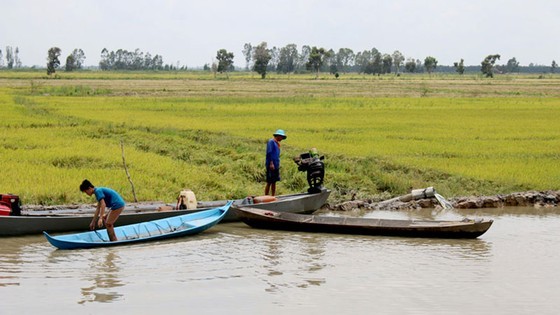 |
Farmers in the Mekong Delta are preparing for the new crop |
India is the world's first largest rice producer and largest exporter of rice. India accounts for more than 40 percent of world rice exports. Therefore, when this country bans the export of all kinds of rice, it will naturally have an impact on the world rice market.
According to Director Nguyen Nhu Cuong, following India’s prohibition of the export of non-basmati white rice, if businesses want to benefit from the increased export price of rice, first of all, they necessarily implement the Government’s Decree 107 on rice export, as well as the instructions of the Ministry of Industry and Trade and the Ministry of Agriculture and Rural Development. Enterprises must have an accurate analysis and forecast of the market to know how long India's rice export ban will take.
Most importantly, when negotiating an export contract, enterprises must calculate the best time to get the best price on the basis of the amount of reserves the enterprise already has. They should not sign contracts because of the high price of rice without consideration of their supply ability.
Talking about Vietnam ensuring food security and maintaining exports, while it is forecast that agricultural production will also be heavily affected by El Nino, Mr. Cuong said that rice production in the country is now very favorable. Without unexpected fluctuations such as natural disasters and large-scale epidemics, the Southeast Asian country can completely achieve the plan of 43 million tons of rice this year and ensure food security. Therefore, Vietnam is highly likely to export over 6.6 million tons of rice as per the plan.
Director Cuong emphasized that the Party and Government always take heed of food security, and stable domestic rice prices for enough supply. Accordingly, the Ministry of Agriculture and Rural Development will closely coordinate with the Ministry of Industry and Trade to regularly update and balance the supply-demand of rice sources from time to time so as to have appropriate policies.
Deputy Minister of Agriculture and Rural Development Phung Duc Tien said that farmers in other countries can only produce two rice crops per year while their Vietnamese peers in the Mekong Delta can produce 3.5 crops per year. When India closes rice exports, countries will sign contracts to buy rice from Vietnam. If production and selling prices are keeping unchanged like the present, Vietnam can completely export 8 million tons of rice earning about US$4-US$4.2 billion in 2023.
























